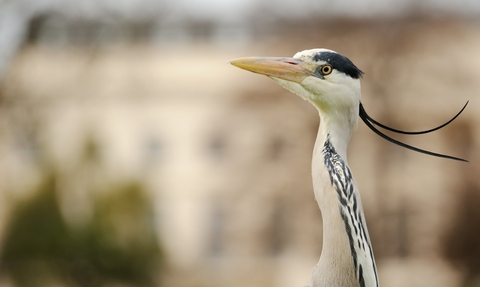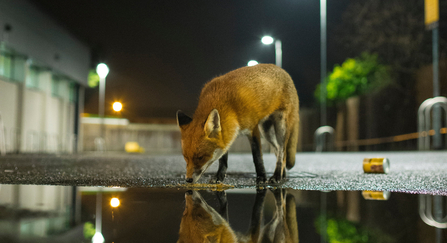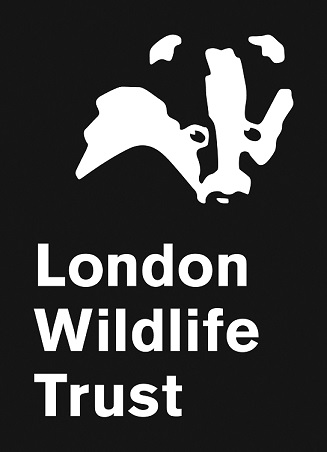
Grey heron (Ardea cinerea) Regent's Park, London - Terry Whittaker/2020VISION
Frequently asked questions
Here are answers to some of our most frequently asked questions. If your query is not covered below, please visit our Contact page to find out how to get in touch.
To find out more about our conservation, supporter and privacy policies click here.
Where’s the best place to see wildlife in London?
The Trust manages a fantastic range of 36 nature reserves spread across different parts of London. Outside of our reserves, we also recommend visiting:
- Beam Parklands, Barking and Dagenham
- Crossness Nature Reserve, Bexley
- Epping Forest, Redbridge/Waltham Forest
- Farthing Downs, Croydon
- Fryent Country Park, Brent
- Hainault Forest, Redbridge/Havering
- Ingrebourne Marshes, Havering
- Lower Lee Valley; especially Walthamstow Marshes, Middlesex Filter Beds, Rammey Marsh
- Oxleas Wood, Greenwich
- Perivale Wood, Ealing (the second oldest nature reserve in Britain)
- Richmond Park, Richmond
- Ruislip Woods, Hillingdon
- Selsdon Wood, Croydon
- Stanmore Common, Harrow
- Tower Hamlets Cemetery, Tower Hamlets
- Trent Country Park, Enfield
- Welsh Harp Reservoir, Brent
- Wimbledon and Putney Commons, Merton/Wandsworth
Can you help me identify a plant/animal?
We are sadly unable to come out to your home so if possible please send in a photograph and description via email, or visit our species explorer page.
I’ve found an injured animal, what should I do?
Unfortunately the Trust is unable to take injured animals or offer anything other than general advice about animal care and welfare. Below is a list of wildlife hospitals in London and surrounding areas. Alternatively, the RSPCA has a 24-hour emergency injured animal line to report an animal in distress: 0300 1234 999.
- London Wildlife Protection – for injured birds anywhere in London call 07909 795 064 (9am – 12am)
- Wildlife Rescue and Ambulance Service, Enfield – for emergency help for injured wildlife anywhere in London call 0208 344 2785 (9am – 5pm)
- St Tiggywinkles Animal Hospital, Buckinghamshire – for emergency help call 01844 292 292 (24 hours)
- The Fox Project – for injured foxes call 01892 731 565 (9am – 9pm)
- National Fox Welfare Society – for foxes suffering with Sarcoptic Mange call 07778 183 996.
- Bat Conservation Trust – for injured bats call 0345 1300 22 (9.30am – 4.30pm)
- British Hedgehog Preservation Society - for injured hedgehogs call 01584 890 801
I’ve found a dead animal, what should I do?
Large animals should be reported to your local authority, while farm animals should be reported to the police via gov.uk/report-dead-animal. Otherwise there is no need to report smaller animals, but it would be helpful if you could send details to Greenspace Information for Greater London, the official wildlife records centre.
I've witnessed a wildlife crime being committed, can you help?
In Britain the responsibility for enforcement of the laws protecting our wildlife rests with the police. In London the division of the Metropolitan Police responsible for the enforcement of wildlife laws and the implementation of initiatives to prevent wildlife crime is the Wildlife Crime Unit. The small team consists of specialist police and police staff who have been appointed for their expertise and experience in wildlife matters.
The London area is home to a wide range of wild species, many of which are protected in law. Wildlife crime includes damage to habitat, poaching, trapping, shooting, hare coursing, badger persecution, theft of wild plants, bat roost destruction, poisoning, and the illegal trade in endangered species in medicine and taxidermy.
Incidents of wildlife crime can be reported to the Wildlife Crime Unit on 020 7230 8898 or at wildlife@met.police.uk
You can also report crime anonymously to Crimestoppers on 0800 555 111.
How do I cut back a bush or tree without harming wildlife?
Cutting and pruning should always take place between September and February, outside of the main breeding period. Nesting birds are fully protected by law and it can be a criminal offence if a nest is harmed.
What should I do if I suspect a wildlife crime has occurred?
Call the Metropolitan Police’s Wildlife Crime Unit on 0207 230 8898 or email wildlife@met.police.uk. You can also report crime anonymously via Crimestoppers on 0800 555 111.
How can I deter pests without harming wildlife?
There are a variety of methods for deterring pests that do not involve harmful chemicals or setting traps:
- Aphids: Plant chives, marigolds, mint, basil, or cilantro. Aluminum foil that reflects light on to the undersides of the leaves also scares aphids away;
- Ants: Cinnamon sticks, coffee grinds, chili pepper, paprika, cloves, or dried peppermint leaves will repel ants. Lemon juice, mint and garlic cloves are also effective;
- Cockroaches: Catnip deters them, as do bay leaves, cucumbers, and garlic;
- Foxes: No easy answer but they are attracted to the smell of rubbish and compost bins;
- Mice: Use mint plants, especially peppermint;
- Moles: Sonic deterrents are available from garden centres and may be quite successful in some circumstances;
- Mites: Plant alder, coriander, or dill, and use rye mulch and wheat mulch;
- Slugs: Place mint, lemon balm, human hair, pine needles, cosmos, sage, or parsley in your garden;
- Ticks and fleas: Put cedar chips in your garden or plant mint, rosemary, and lavender.
I need to carry out an ecological survey, can you help?
We employ professional ecologists to carry out surveys. Visit our consultancy page for more information.
How can I help attract more wildlife to my garden?
There is a lot of useful information on helping to attract more wildlife into your garden our Garden for a living London page.
Can I arrange a school trip to a nature reserve in London?
Absolutely! Visit our outdoor education page to find out more.
I want to film or take photos on one of your sites for commercial use
We have a filming and photography policy on our reserves. Please visit our film and photography page for more information.
My question hasn't been answered in the FAQs
If your query is not covered below, please visit our Contact page to find out how to get in touch.

WildNet - Jamie Hall
